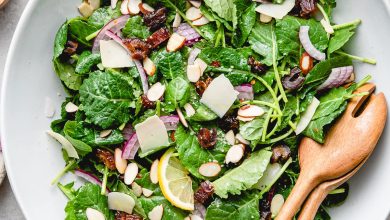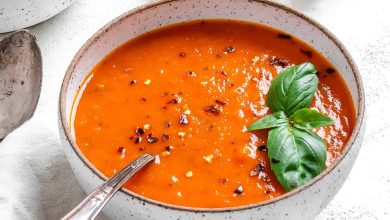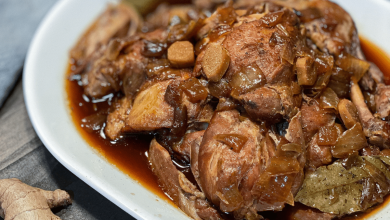All Seasons Marinade
The term “All Seasons Marinade” does not refer to a specific, well-known marinade with a defined history and set of components. Instead, it seems to be a generic name for a versatile marinade that can be used throughout the year, adapting to different seasons and ingredients. Marinades are typically used to enhance the flavor and tenderness of meats, seafood, or vegetables before cooking. Below, I’ll provide you with a general idea of what an all-seasons marinade might consist of, how to prepare it, and how long it might take:
Components:
An all-seasons marinade can be customized based on your flavor preferences, but here are some common components:
-
Acid: Choose from options like vinegar (white, red wine, balsamic), citrus juice (lemon, lime, orange), or yogurt. Acid helps tenderize the food and adds brightness to the flavor.
-
Oil: Olive oil, vegetable oil, or even nut oils like sesame or peanut can be used. Oil helps in distributing flavors and prevents sticking during grilling or roasting.
-
Aromatics: These can include garlic, onions, shallots, fresh herbs (rosemary, thyme, basil, cilantro), and dried spices (paprika, cumin, coriander). Aromatics add depth and complexity to the marinade.
-
Sweetener: Options like honey, maple syrup, brown sugar, or agave syrup can balance out the acidity and add a touch of sweetness.
-
Salt and Pepper: Essential for seasoning. You can use regular table salt, sea salt, or kosher salt along with freshly ground black pepper.
-
Optional Flavor Enhancers: Depending on your taste, you might add soy sauce, Worcestershire sauce, hot sauce, or Dijon mustard for extra depth of flavor.
Steps to Prepare:
-
Gather your ingredients: Assemble all the components you plan to use.
-
Combine ingredients: In a mixing bowl or a sealable container, mix the acid, oil, aromatics, sweetener, salt, pepper, and any optional flavor enhancers. Adjust the quantities to your liking and based on the amount of food you’re marinating.
-
Marinate the food: Place the food you want to marinate in a resealable plastic bag or a shallow dish. Pour the marinade over the food, ensuring it’s evenly coated. Seal the bag or cover the dish and refrigerate.
-
Marinating time: The time needed to marinate food can vary widely depending on what you’re marinating. Generally, for meats, poultry, and seafood, marinating for at least 30 minutes to 24 hours is typical. Vegetables may require less time, usually around 15-30 minutes.
-
Cooking: After marinating, cook the food as desired. Grilling, baking, roasting, or pan-searing are all common cooking methods.
Remember, the marinating time can vary depending on the thickness and type of food. Thicker cuts may require longer marination for the flavors to penetrate. Always refrigerate while marinating to prevent foodborne illnesses.
The “All Seasons Marinade” is a concept that allows for creativity and flexibility in the kitchen. Feel free to experiment with different combinations of the components mentioned above to create your own unique marinades for different dishes and seasons.
I can certainly provide you with some general nutrition facts and health information for a typical marinade. Keep in mind that specific values will vary depending on the exact ingredients and quantities used in your “All Seasons Marinade.”
Nutrition Facts (per serving):
-
Calories: The calorie count will primarily come from the oil and any added sweeteners. On average, a tablespoon of olive oil contains around 120 calories.
-
Fat: Mainly from the oil. Olive oil is a healthy fat, rich in monounsaturated fats which are beneficial for heart health.
-
Protein and Carbohydrates: Marinades are not a significant source of protein or carbohydrates unless they contain ingredients like yogurt or honey.
-
Sodium: Depending on the amount of salt used, the sodium content may vary. Be mindful of your sodium intake, especially if you have high blood pressure or other health concerns.
-
Vitamins and Minerals: A well-rounded marinade with fresh herbs and aromatics can provide small amounts of vitamins and minerals. For example, garlic is a good source of vitamin C, vitamin B6, and manganese.
Health Information:
-
Heart Health: Olive oil, commonly used in marinades, is rich in monounsaturated fats which have been associated with heart health. However, it’s still calorie-dense, so moderation is key.
-
Antioxidants: Fresh herbs, garlic, and some spices used in marinades are rich in antioxidants which can help protect cells from damage.
-
Balanced Flavors: A well-constructed marinade can enhance the flavor of your dishes without relying on excessive salt or sugar.
-
Customizable for Dietary Needs: Marinades can be adapted for various dietary preferences such as vegan, gluten-free, or low-carb.
-
Avoid Over-Marinating: While marinating can enhance flavor, leaving food in marinade for too long can result in a mushy texture. It’s best to follow recommended marinating times.
-
Hygiene and Food Safety: Always marinate in the refrigerator to avoid the risk of bacterial growth. Ensure that raw meats and seafood are marinated separately to prevent cross-contamination.
Remember, the healthiness of a marinade also depends on the overall context of your diet. A marinade, even a healthy one, should be part of a balanced and varied eating plan. If you have specific dietary concerns or health conditions, it’s always a good idea to consult with a registered dietitian or healthcare professional for personalized advice.








